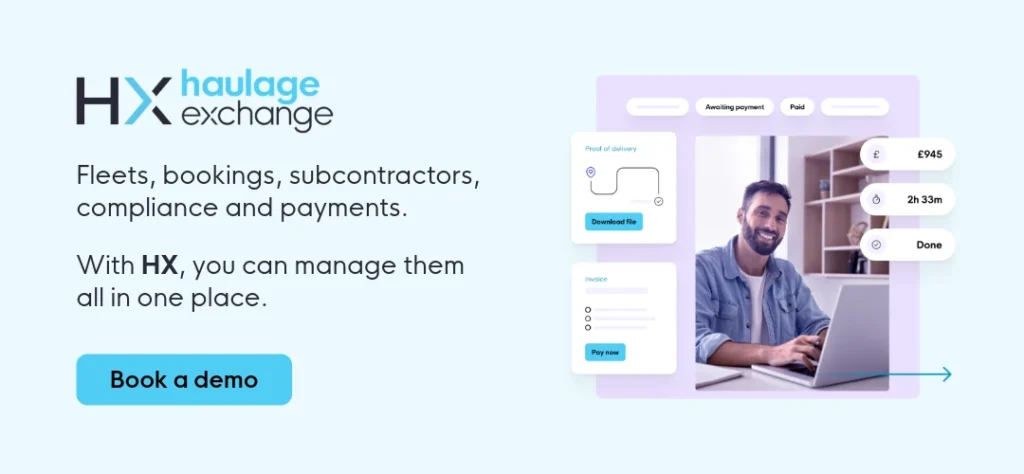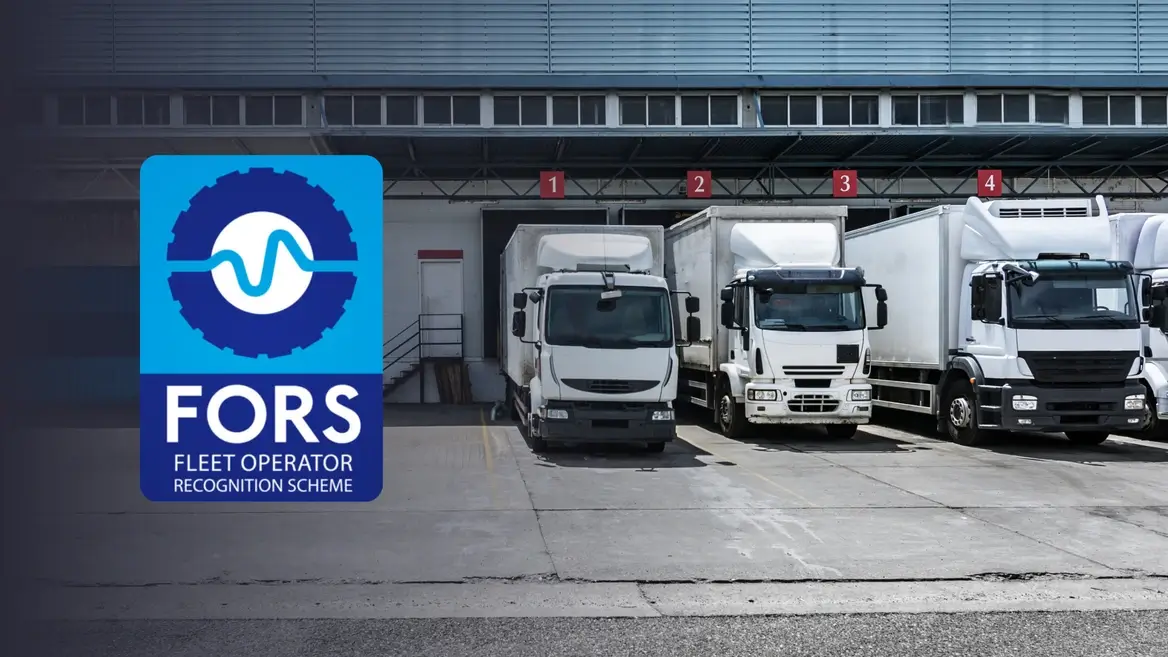As a haulage company, you’re always looking for ways to stay ahead of the competition. Keeping your fleet safe, efficient, and environmentally friendly isn’t just good practice—it’s becoming more and more of a demand from customers and industry regulators. This is where the Fleet Operator Recognition Scheme / FORS accreditation can make all the difference.
But is it worth the time and effort for your business?
In this guide, we’ll break down exactly what FORS is, the benefits it brings to your operations, and how it can help you win more business.
Whether you want to boost your reputation or improve fleet management, you’ll see why FORS accreditation could be a smart move for your haulage company.
What we’ll cover
What is FORS accreditation?
FORS is a voluntary scheme that helps fleet operators improve their safety, efficiency, and environmental practices. It’s designed to set standards for the transport industry, focusing on areas like fuel efficiency, vehicle safety, driver training, and environmental impact. The accreditation is open to any transport company, whether you operate HGVs, vans, or a mixed fleet.
FORS accreditation works in a tiered system, meaning that companies can progress from a basic level (Bronze) to higher levels (Silver and Gold) as they improve their fleet management practices. Each level requires meeting a specific set of standards that focus on safety, compliance, and environmental performance.
The different levels of FORS accreditation
FORS Bronze: Entry-level requirements
FORS Bronze is the first step, and focuses on basic compliance and safety standards. To achieve FORS Bronze, your fleet needs to meet a range of requirements, including regular vehicle inspections, proper record-keeping, and driver training. For example, you’ll need to prove that your vehicles are well-maintained and that your drivers have received adequate HGV driver training to operate safely on the road.
Bronze accreditation also requires businesses to comply with local laws and regulations, such as having a valid operator licence and meeting environmental standards like emissions reduction.
FORS Silver: Moving up the ranks
FORS Silver takes things a step further. At this level, the focus shifts to improving driver performance and promoting sustainability. To achieve FORS Silver, you’ll need to demonstrate that your fleet meets stricter standards, including reduced emissions, improved HGV fuel efficiency, and better driver training.
This level also requires the use of carrier management software to monitor vehicle performance and safety in real time. Additionally, companies must show that their vehicles meet current safety standards, such as fitting cameras and sensors to prevent accidents.
FORS Silver accreditation is ideal for companies looking to stand out from competitors and win more contracts, as it shows you’re committed to high standards of operation.
FORS Gold: The highest level of compliance
FORS Gold is the highest level a company can achieve, and requires a deep commitment to continuous improvement in all areas of fleet management, including safety, environmental impact, and operational efficiency. To achieve FORS Gold, you’ll need to go beyond basic compliance and show that your fleet is performing at its best.
At this level, you’ll need to demonstrate that your fleet is using sustainable fuels or actively working towards reducing carbon emissions. You’ll also need to show leadership in the industry by sharing best practices and supporting the development of safety and environmental standards.
FORS Gold accreditation is often seen as a mark of excellence, helping you attract larger clients and more bigger haulage contracts.

Benefits of FORS for haulage companies
Boosting customer trust and authority
One of the main reasons to pursue FORS accreditation is the impact it has on your reputation.
Customers and contractors are increasingly looking for haulage companies that meet high standards of safety and compliance. By achieving FORS accreditation, you demonstrate your commitment to best practices, which can help build trust with clients.
It also builds your authority within the logistics industry. Many large companies require contractors to be FORS-accredited before they’ll work with them. Having the FORS badge on your vehicles and website shows that your business takes safety and environmental responsibility seriously.

Improving fleet management and operational efficiency
By following the standards set by FORS, you can improve fuel efficiency, reduce maintenance costs, and minimise accidents.
For example, at the Silver level, you’ll need to monitor driver performance and reduce idling times, which can cut fuel costs and help your business operate more smoothly.
Better fleet management also means better long-term savings. When your vehicles are maintained to a higher standard, they last longer, perform better, and cost less to run. Improved safety measures reduce the risk of accidents, which in turn lowers insurance premiums.
All of these benefits combine to make FORS accreditation a smart investment for any haulage company looking to optimise its operations.
What’s involved in maintaining FORS accreditation?
FORS accreditation doesn’t end once you’ve achieved it. To maintain your certification, you’ll need to undergo annual audits and continuously demonstrate that your fleet meets the required standards. This means keeping up with regular vehicle checks, driver training, and environmental reporting.
At the higher levels of FORS, maintaining compliance involves even more detailed monitoring. You’ll need to show that you’re reducing emissions and working towards using more sustainable fuels, whether it’s with electric HGVs or hydrogen HGVs. Additionally, you’ll need to track driver behaviour, fuel consumption, and safety incidents to stay compliant with FORS requirements.
Ongoing improvement is a key part of FORS accreditation. Whether you’re working towards achieving FORS Silver or FORS Gold, you’ll need to show that you’re actively improving your fleet’s performance each year.
Conclusion
For haulage companies with small to medium fleets, FORS accreditation offers a range of benefits that can improve operations, reduce costs, and boost your reputation.
Whether you’re just starting with FORS bronze or aiming for FORS gold, the accreditation shows that your haulage solutions business is committed to safety, efficiency, and sustainability.
With increasing pressure to adopt sustainable fuels and reduce emissions, now is the time to start thinking about FORS accreditation. Whether you’re looking to improve your fleet management or thinking about starting a haulage company, it can give you an edge in a competitive market, helping you win more contracts and build trust with customers.




